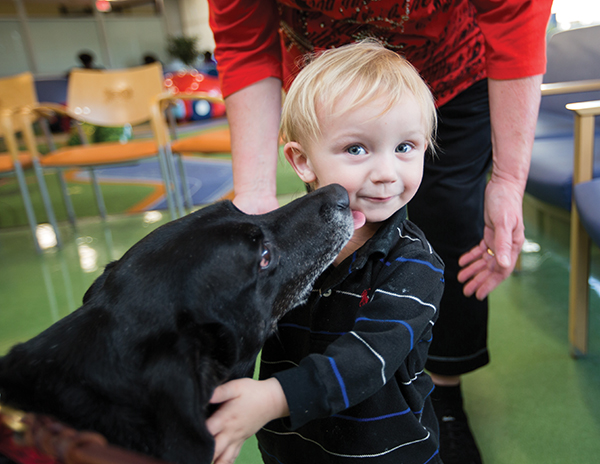|
NOTE: This article originally appeared in the Spring 2017 issue of Under the Rainbow, the semi-annual magazine for Batson Children's Hospital/Children's of Mississippi. A PDF of that issue can be found here. 
Lyla, Honey and Uno, the canine pet therapy team at Batson Children's Hospital, help patients forget about being ill or injured for a while. When these dogs, ranging from a Shetland sheepdog to a Labrador-chow mix, stop in, they offer children the healing power of petting a dog. That power, it turns out, is fairly potent. The simple act of petting a dog can lower stress and blood pressure and help humans from children to adults make connections among each other as well as with the canine. Alan Beck, director of the Center of the Human-Animal Bond at Purdue University, said even a brief visit with a therapy dog can have an effect on young patients. “Even a short interaction a dog has a relaxation response,” Beck said. “We demonstrated a small but consistent decrease in blood pressure, and facial expressions indicated relaxed features. The effect is probably stimulated for two reasons. We are genetically coded to find reward with contact - gentle touch among welcomed partners lowers blood pressure - and we view dogs as members of the family.” Furry friends such as Lyla, a 7-year-old Shetland sheepdog, can be a distraction for kids who need something to take their minds off being in the hospital. “Anything that helps you focus your attention on the present relaxes,” Beck said.
|





























